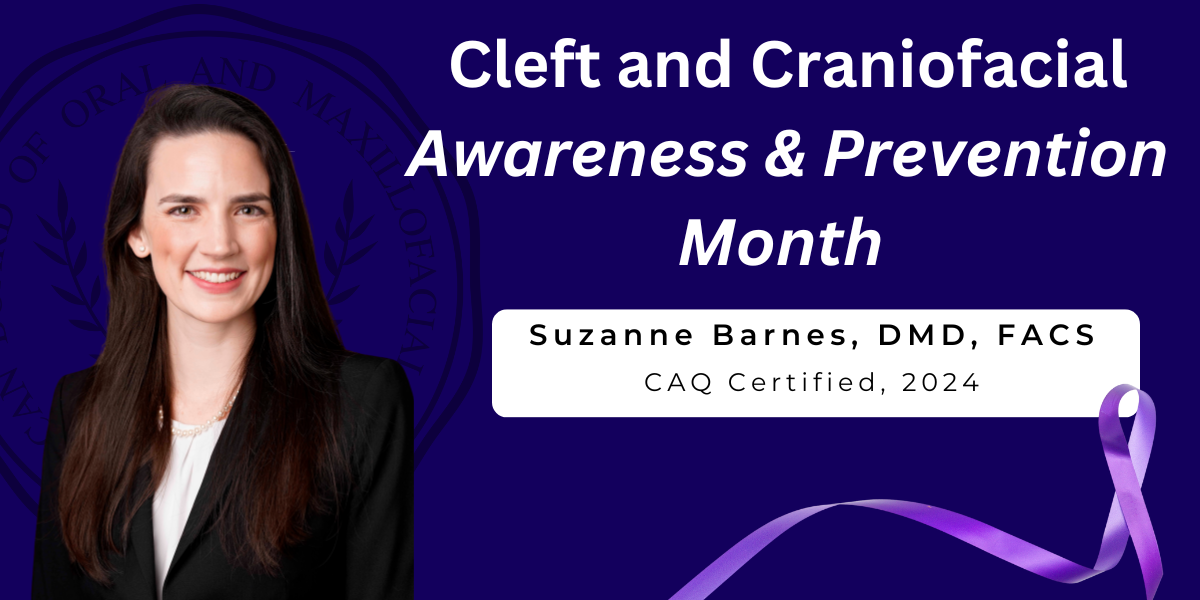
Jul 30, 2025
The Importance of Fellowship Training: Insights from Dr. Suzanne Barnes
For Diplomates with a Certificate of Added Qualifications, fellowship training plays a key role in developing advanced, specialized skills. Suzanne Barnes, DMD, FACS, a Board-Certified Oral and Maxillofacial Surgeon and CAQ Certificant in Pediatric Craniomaxillofacial Surgery (Cleft and Craniofacial), shares her experience and perspective on the value of this rigorous training process and its impact on a surgeon’s growth and development.
What inspired you to choose a fellowship in Pediatric Cleft and Craniofacial Surgery?
When I was a resident at Vanderbilt, my attendings took care of multiple patients with cleft lip and/or palate who required bone grafting or orthognathic surgery. They were always some of my favorite patients! After participating in several of these patients’ surgeries, I decided I wanted to be able to take care of these patients from birth to adulthood. Following graduation from residency, I completed a fellowship in cleft and craniofacial surgery at Charleston Area Medical Center in Charleston, West Virginia, and it was one of the best decisions I ever made for my career!
What are the most challenging and rewarding aspects of fellowship training, and how do they prepare surgeons for this specialized practice?
Fellowship training is rigorous, and intended to be so, but you come away from that time exceptionally prepared to care for patients with cleft and craniofacial anomalies. The best way you can train to be an excellent fellow is by starting with being an excellent oral and maxillofacial surgery resident. So many aspects of the OMFS residency training can be applied to patients with cleft and craniofacial anomalies. It really has provided an excellent foundation for my entire career.
What is your vision for training the next generation of surgeons?
I am a full-time faculty member at the University of Louisville and absolutely love teaching the oral and maxillofacial surgery residents! My cleft and craniofacial surgery practice has really grown since I started in 2021 and I am so grateful to have the opportunity to allow the residents to be part of the care of my patients. My hope is some of my residents would desire to participate in the local cleft and craniofacial team wherever they end up after residency. It would be an absolute honor to inspire residents to pursue a career in cleft and craniofacial surgery, but really, I just hope I inspire residents to treat all their patients with the dignity and respect they deserve.
How has pursuing the CAQ in Pediatric Craniomaxillofacial Surgery (Cleft and Craniofacial) enhanced your training and advanced your career?
The CAQ in Pediatric Craniomaxillofacial Surgery is an excellent adjunct to provide evidence that oral and maxillofacial surgeons with fellowship training are qualified to provide optimal care for patients with cleft and craniofacial anomalies. It examines every aspect of the care we provide. Additionally, it gives us credentials to show our hospital systems and referring providers that we take every step possible to confirm we can give the best care to patients with cleft and craniofacial anomalies.